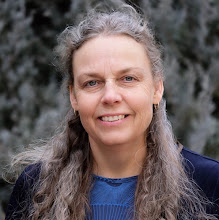Speaking well of indigenous cultures is romanticizing them? I don't think so.
Hugh Brody has this to say:
"Fatalism and impatience are recurring attitudes when intellectuals, politicians, and journalists speak about the destiny of hunter-gatherers or, indeed, of any other indigenous societies. These people are bound to change, … sure to disappear [say the would-be realists]. … Instead of attempting to hold back the inevitable, [the fatalists continue] those who care … should advocate the full participation of indigenous peoples in the modernization process. This bundle of arguments is endorsed as the 'realistic' position; the rival view is to be stigmatized as romanticism.
…the underlying story is clear enough. One kind of economy and culture overwhelms another. …To report this, and to work with or for those in despair, is not to be romantic so much as to be in touch with the real. Men and women in most hunter-gatherer communities relate histories, often within their own lifetimes, of extreme loss…. Personal experience on frontiers and the findings of many scholars endorse the voices of the elders. … Where, then, is romanticism? In pretending that a particular kind of history has not taken place? Or in giving voice to those whose heritage and experience are part of this history?
…
[The 'realist'] line of reasoning draws on faith in progress and posits more or less a priori that human history is composed of changes that are improvements. Yet to suggest that all change is for the better is to pretend that frontiers do not exist, and that they proceed in some benign and innocent way. This is a belief, not a discovery made by social science. To insist that all changes are some form of 'development' does not oppose romance with realism. Faith in progress is itself a kind of religion.
…anthropologists who have worked in hunter-gatherer societies repeatedly celebrate the humor, gentleness, and everyday equality they find there. To celebrate the qualities of the system, and to identify the many ways in which that system secures a successful relationship between people and their lands, as well as among the people themselves – this is to identify the real, not perpetuate the romantic. Nor is it romanticism to express concern about a system's decline, to convey people's dismay about being dispossessed, to affirm their rights to keep their lands, languages, and customs.
…Egalitarianism, respect for the elderly, loving regard for children, diligent respect for the land, plants, and animals on which people depend – these are the 'virtues,' too often missing in the 'developed' world, that cause visitors to hunter-gatherer societies to experience deep admiration. To describe these things, and seek to understand them, is not romanticism but the most relevant kind of realism."
pp. 136-141, Hugh Brody, 2000, The Other Side of Eden: Hunters, Farmers and the Shaping of the World, NY: North Point Press.


0 Comments:
Post a Comment
<< Home